Pullout Bed - Trundle Bed for IKEA Kritter
by karim.b in Workshop > Furniture
750 Views, 13 Favorites, 0 Comments
Pullout Bed - Trundle Bed for IKEA Kritter
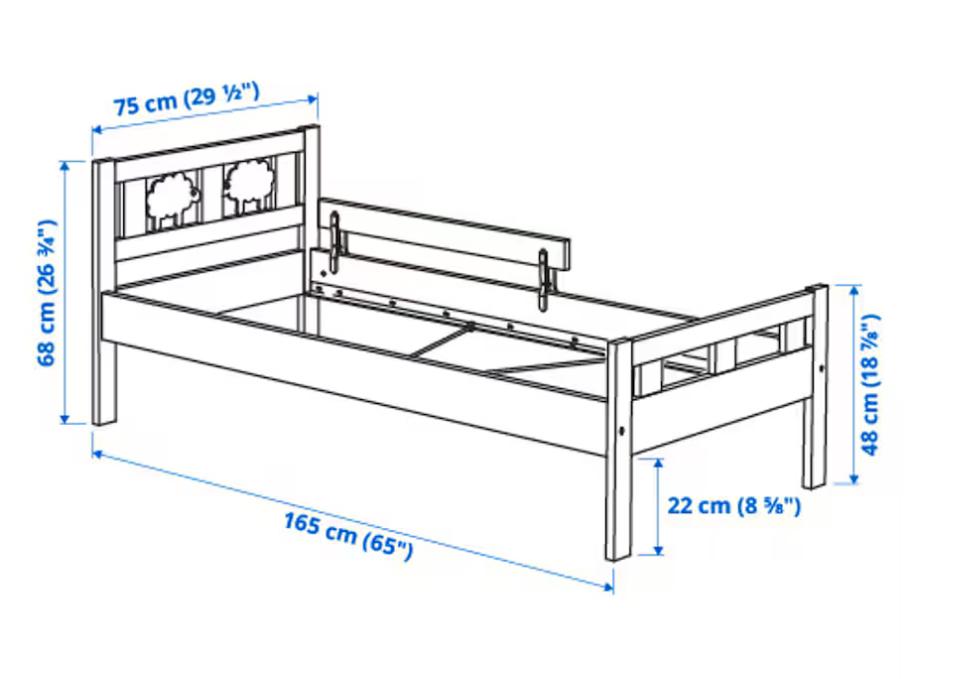
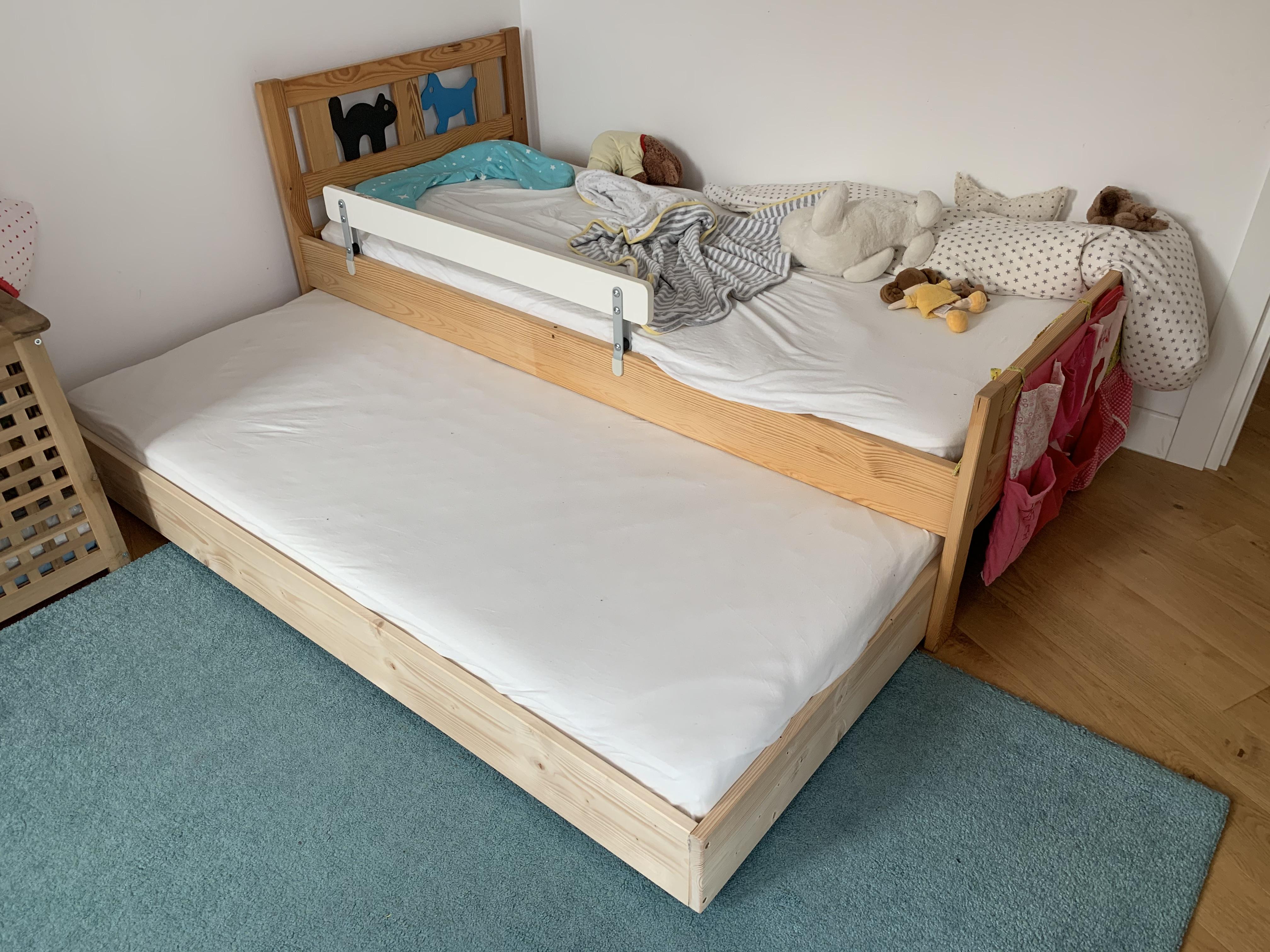
Being father of twin girls 👯♀️ is amazing and so everything in the house, needs to be doubled, and I can indulge in DIY :)
We received a second-hand Ikea kid bed 🛏️ as a gift. I would say it is actually sold as Kritter model.
The room is not very big and we did not want to take away too much play space with another fixed bed.
So I decided to build a new bed that could be slipped under the Ikea one when not in use.
Supplies
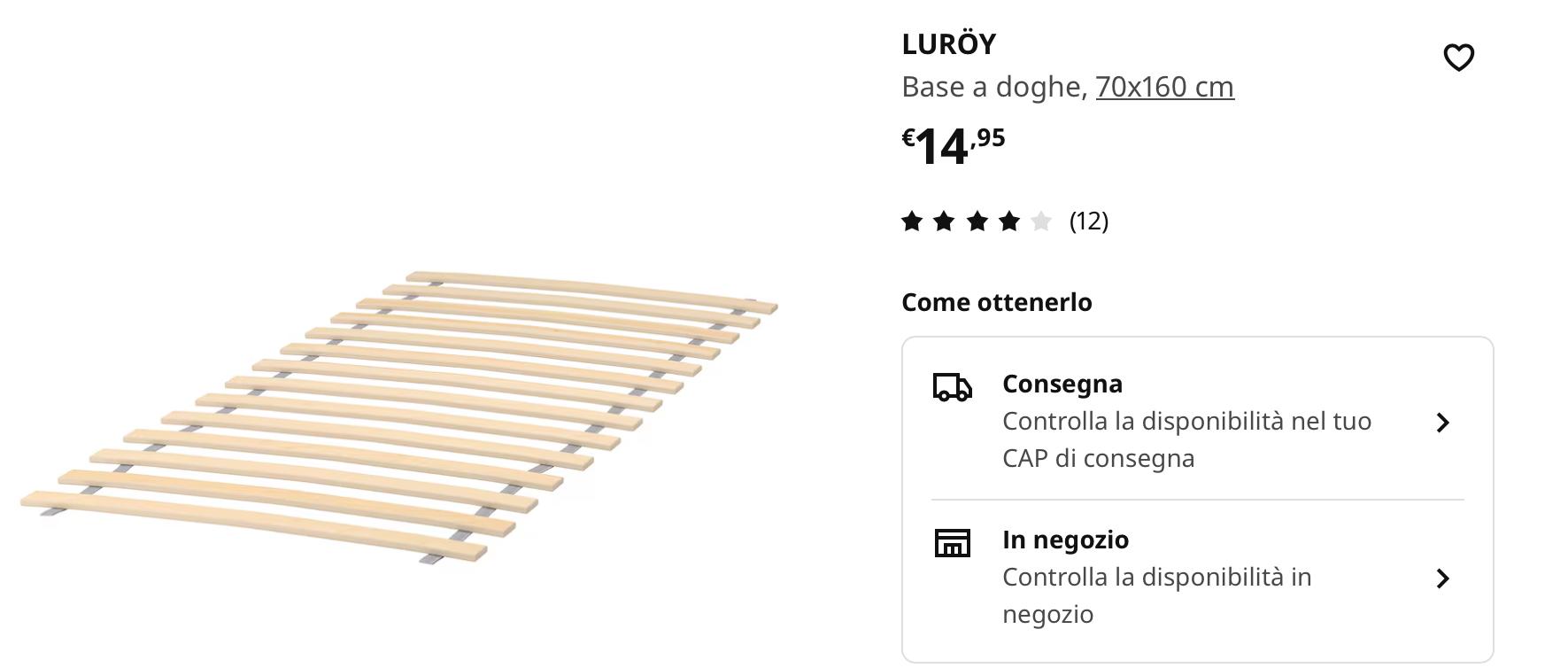
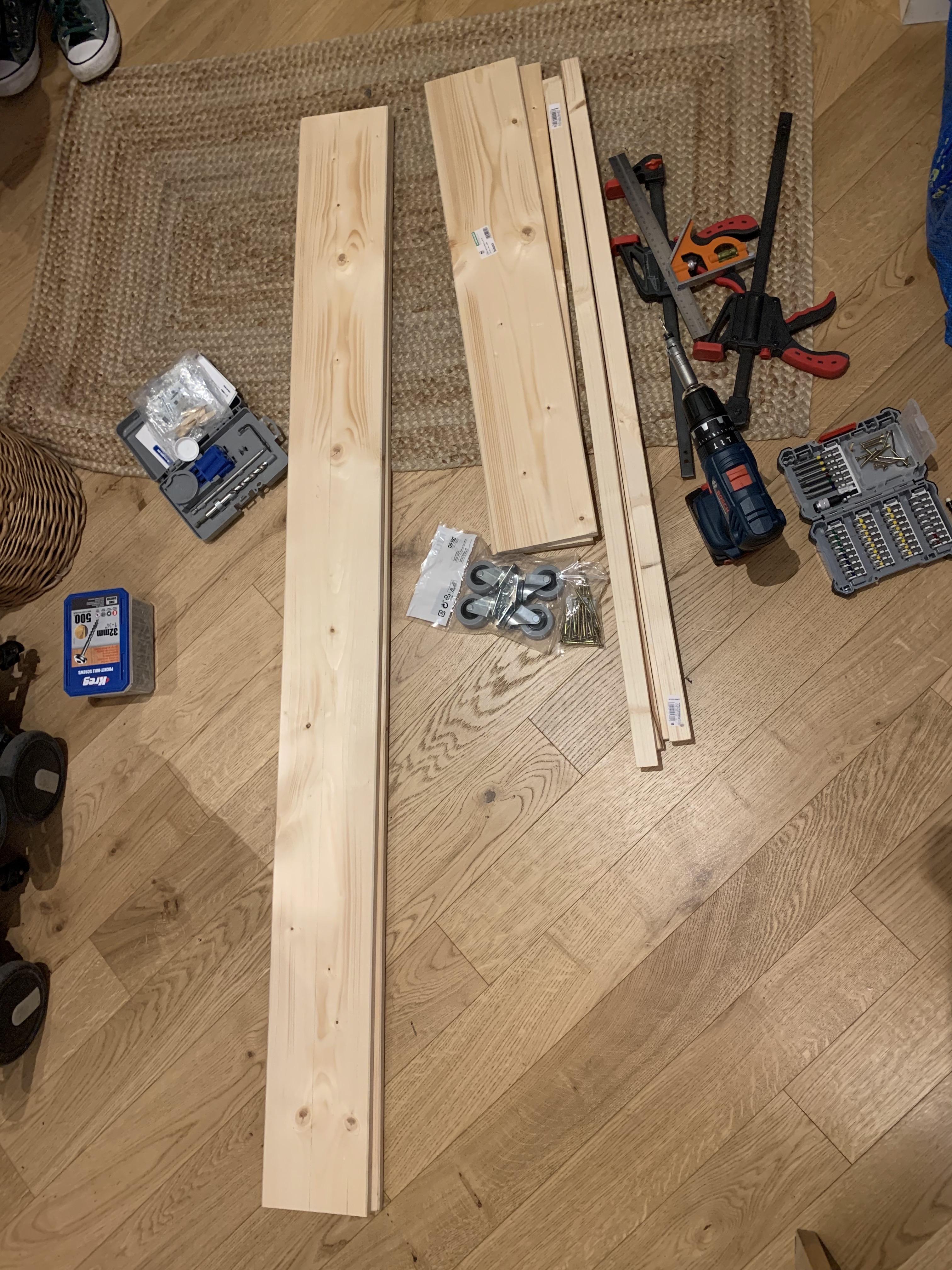
I purchased:
- Wood boards for the external edge 14cm tall and 18mm thick
- Wood strips to support the slats 18x28mm
- 4 wheels (they should be fixed, I only found them swivel)
- Screws
- Glue
- 4 L-shaped screws
- Rubber tape
- The ready-made Ikea Luroy slats
- A new mattress 70x160
Tools:
- Drill/screwdriver
- Meter
- Level
- Clamps
Measures
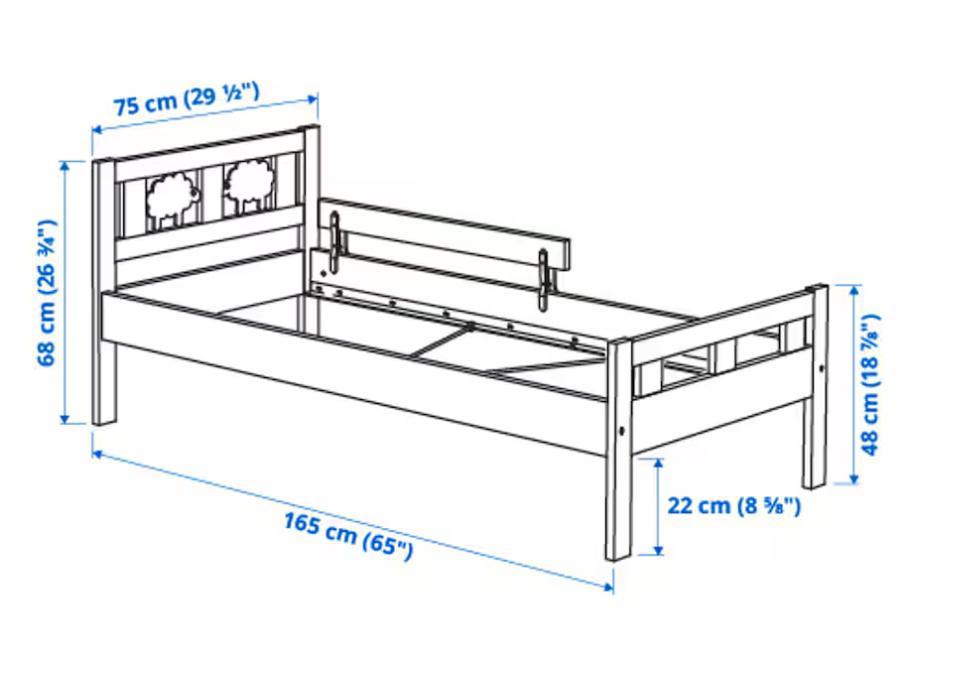
The project is very simple, following the structure of the Ikea one as much as possible, only 5 cm shorter. In fact it also maintains the same width.
For the measurements, as I said, I did nothing but reduce the overall length of the new bed by 5 cm taking into account the thickness of the legs of the existing bed and a few millimeters of air to allow the new bed to slide easily.
In order to have no difficulty inserting the standard 70x160 mattress, I chose slightly thinner boards (18mm) than those of the existing bed which are 22mm thick.
Outside Structure
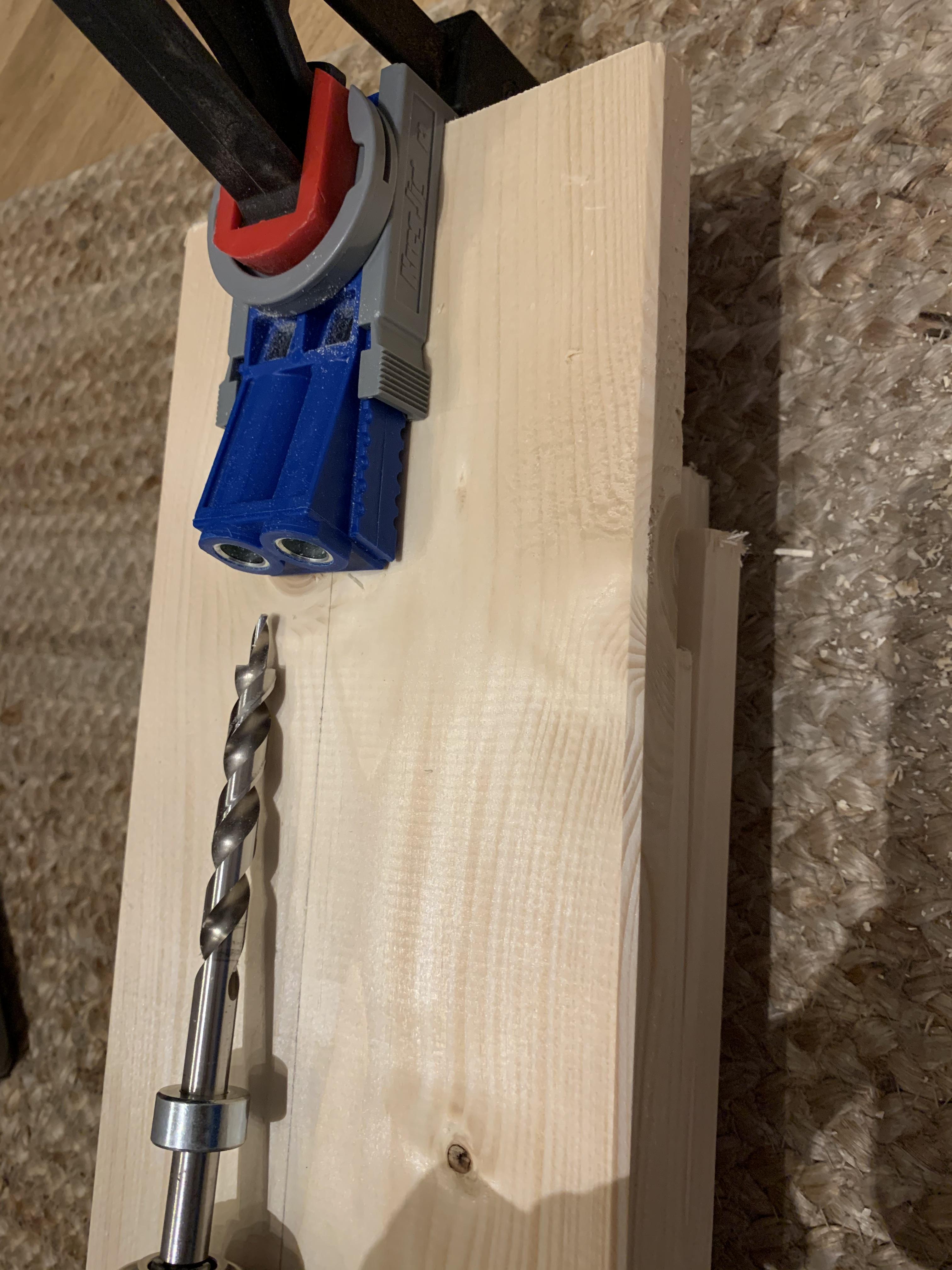
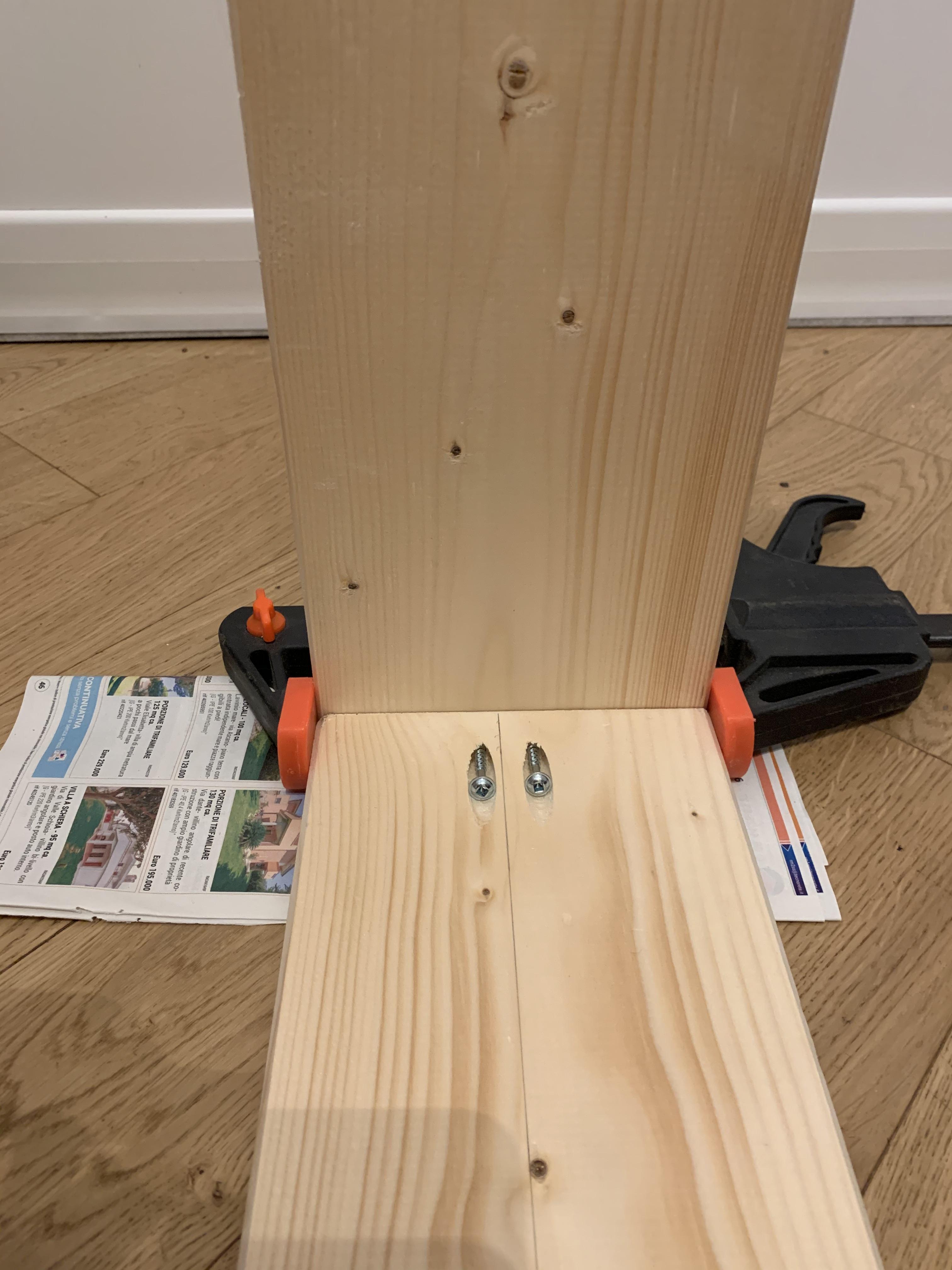
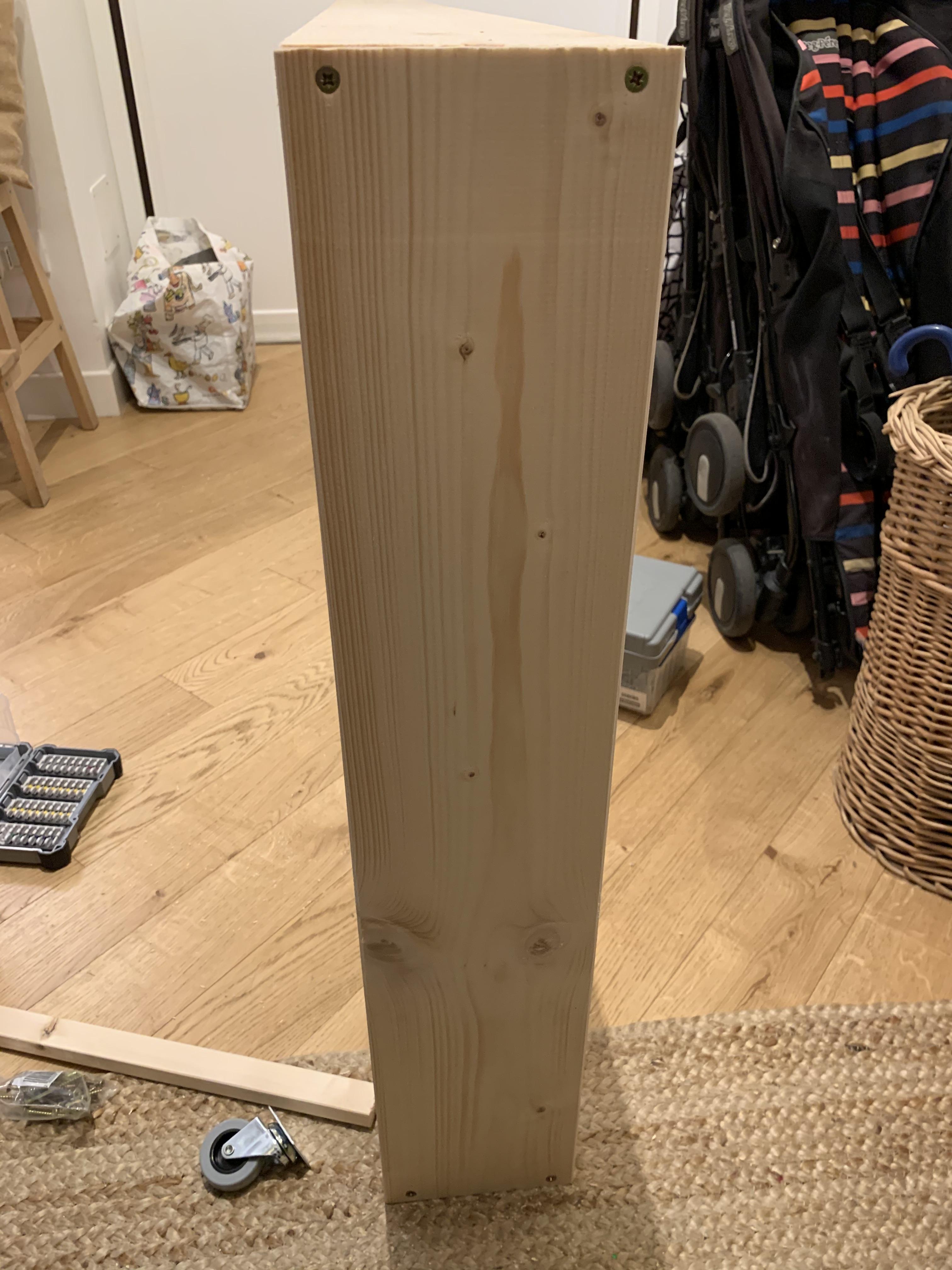
Having the Kreg Jig available, I used it to drill and screw 2 screws into the internal joints and then make 2 more classic holes from the outside on the short side of the bed.
Fixing with pocket holes alone did not give me the necessary confidence in the resistance for a bed. So you can just use 3 screws from outside ignoring the pocket holes.
In each corner, I used glue to make the fixing stable and definitive.
Slat Support
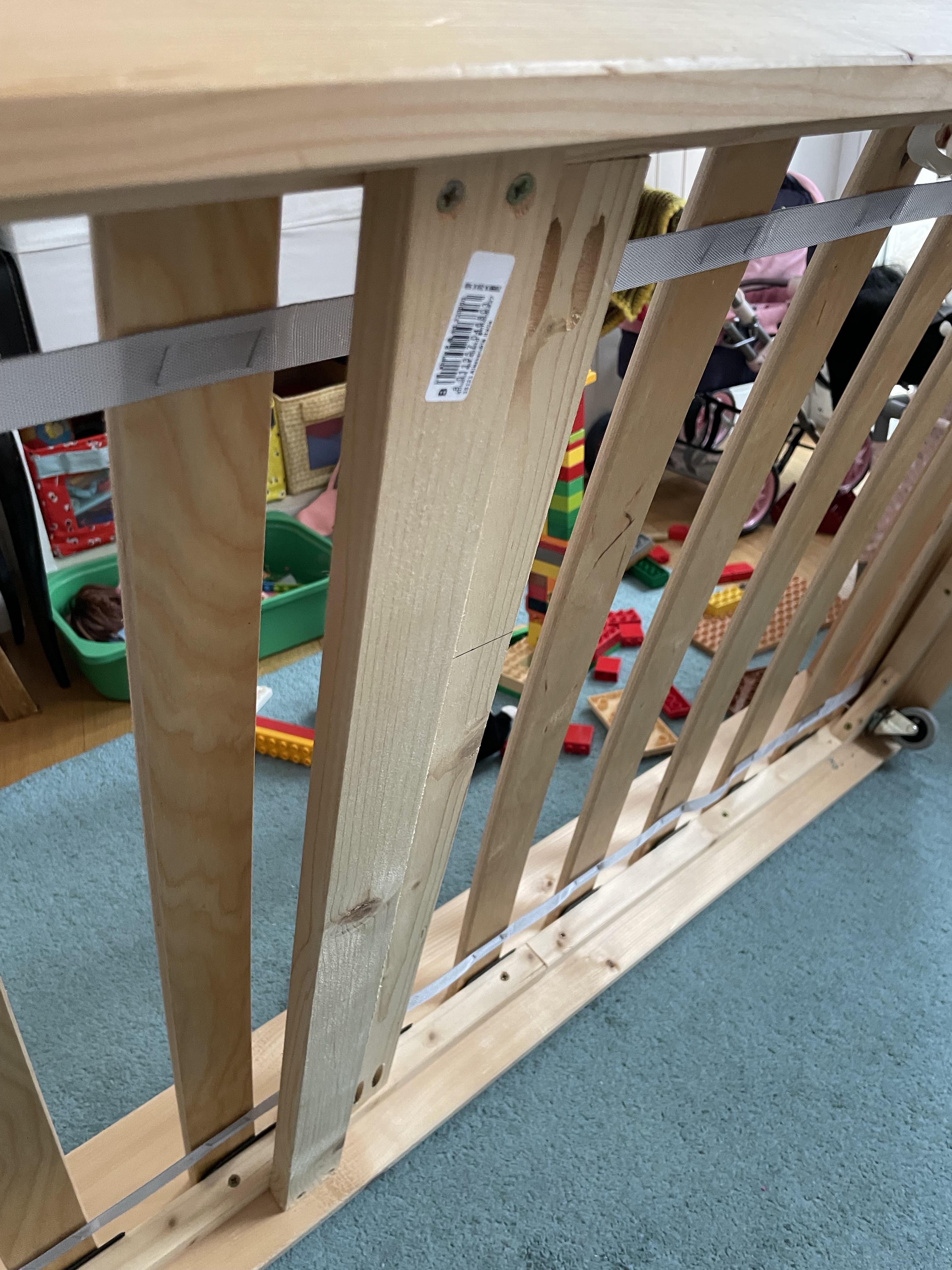
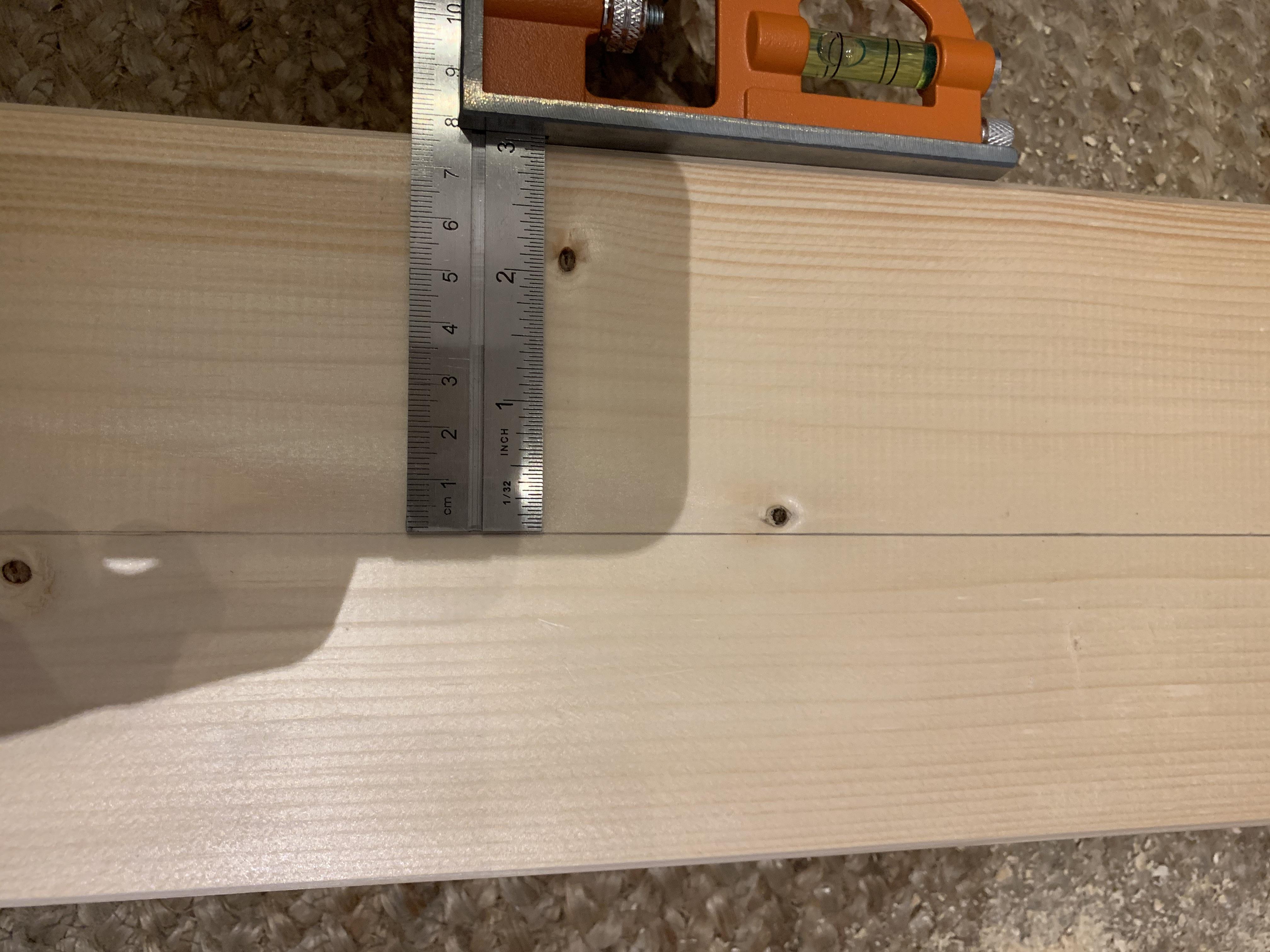
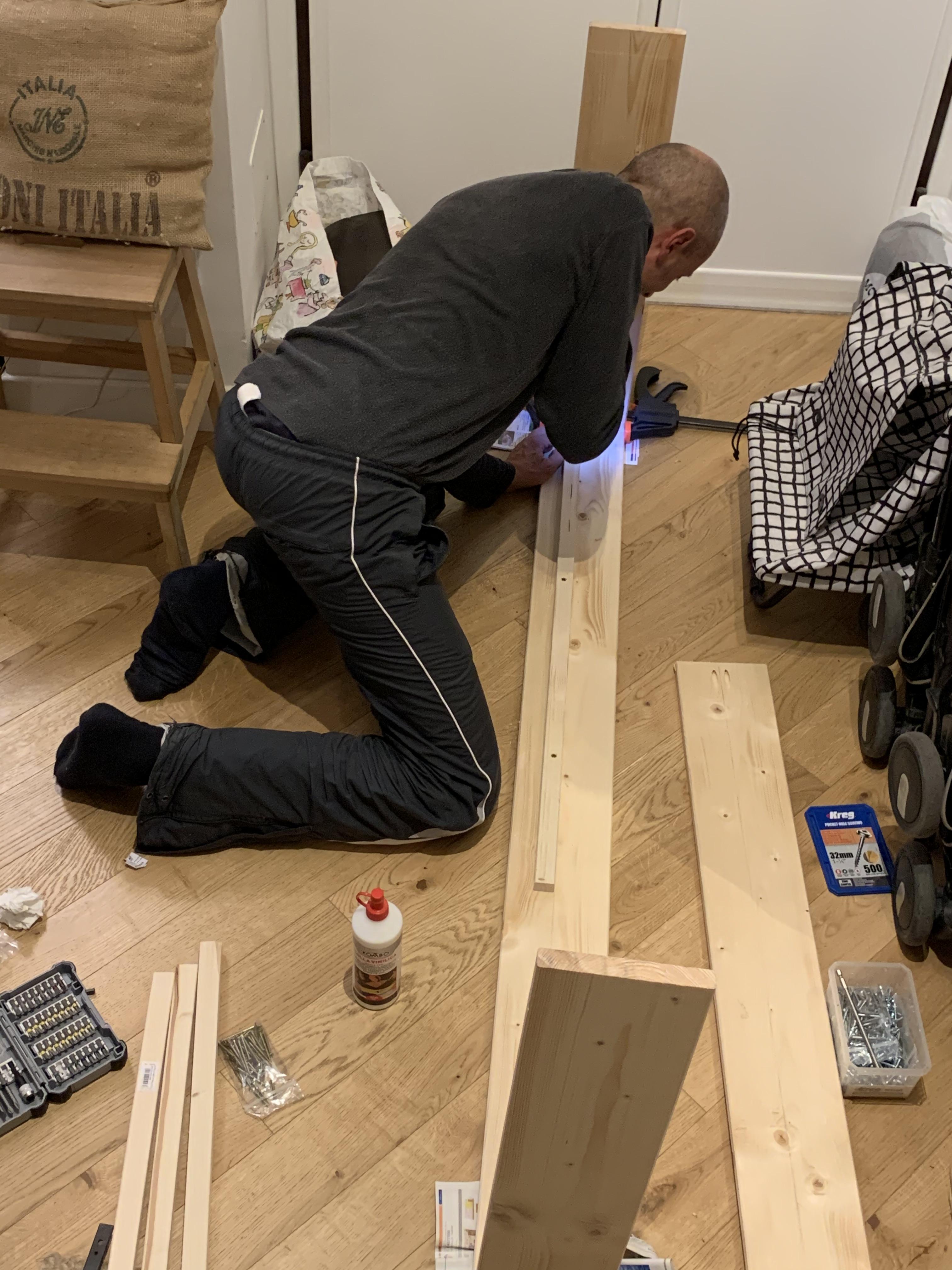
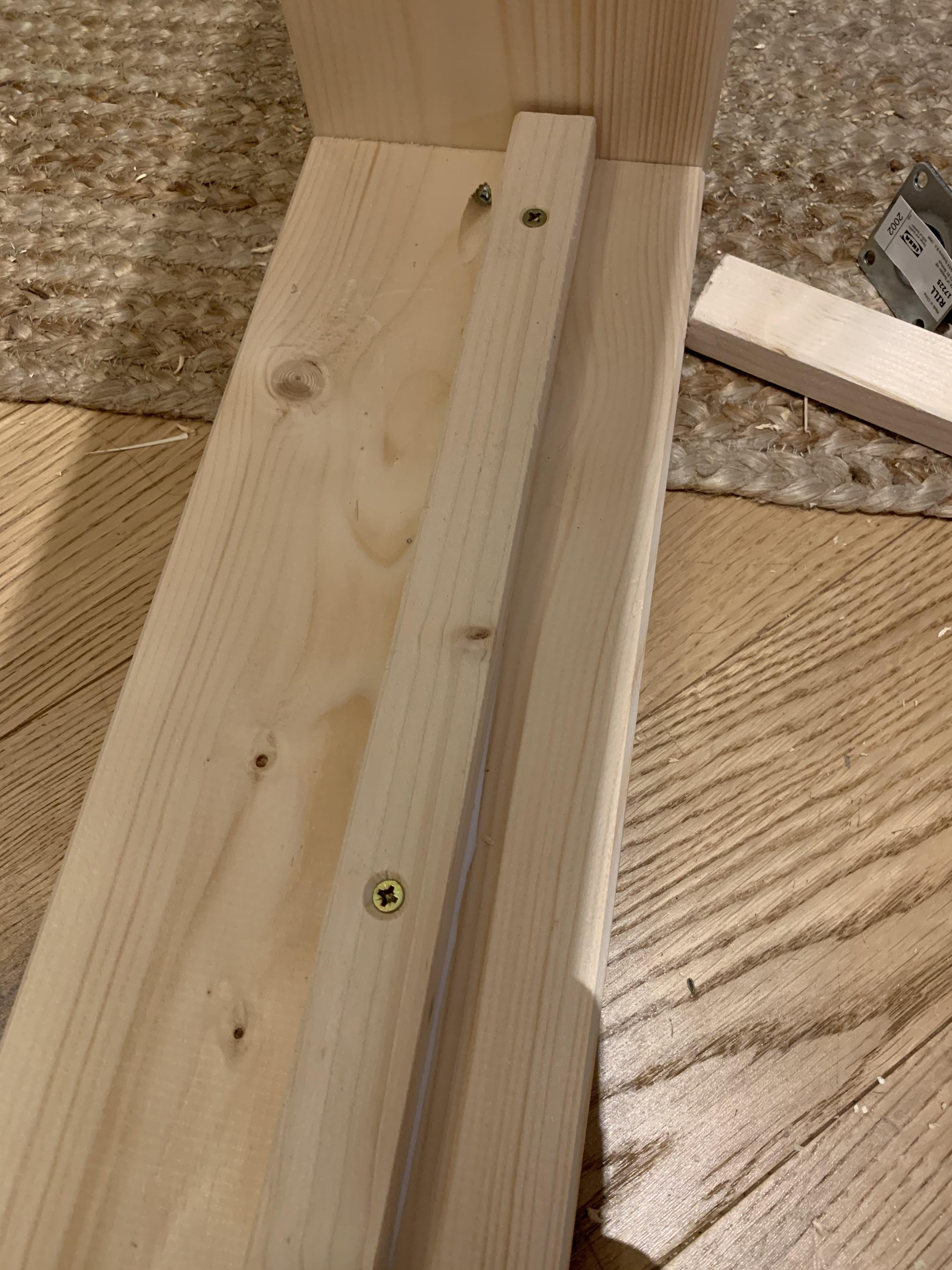
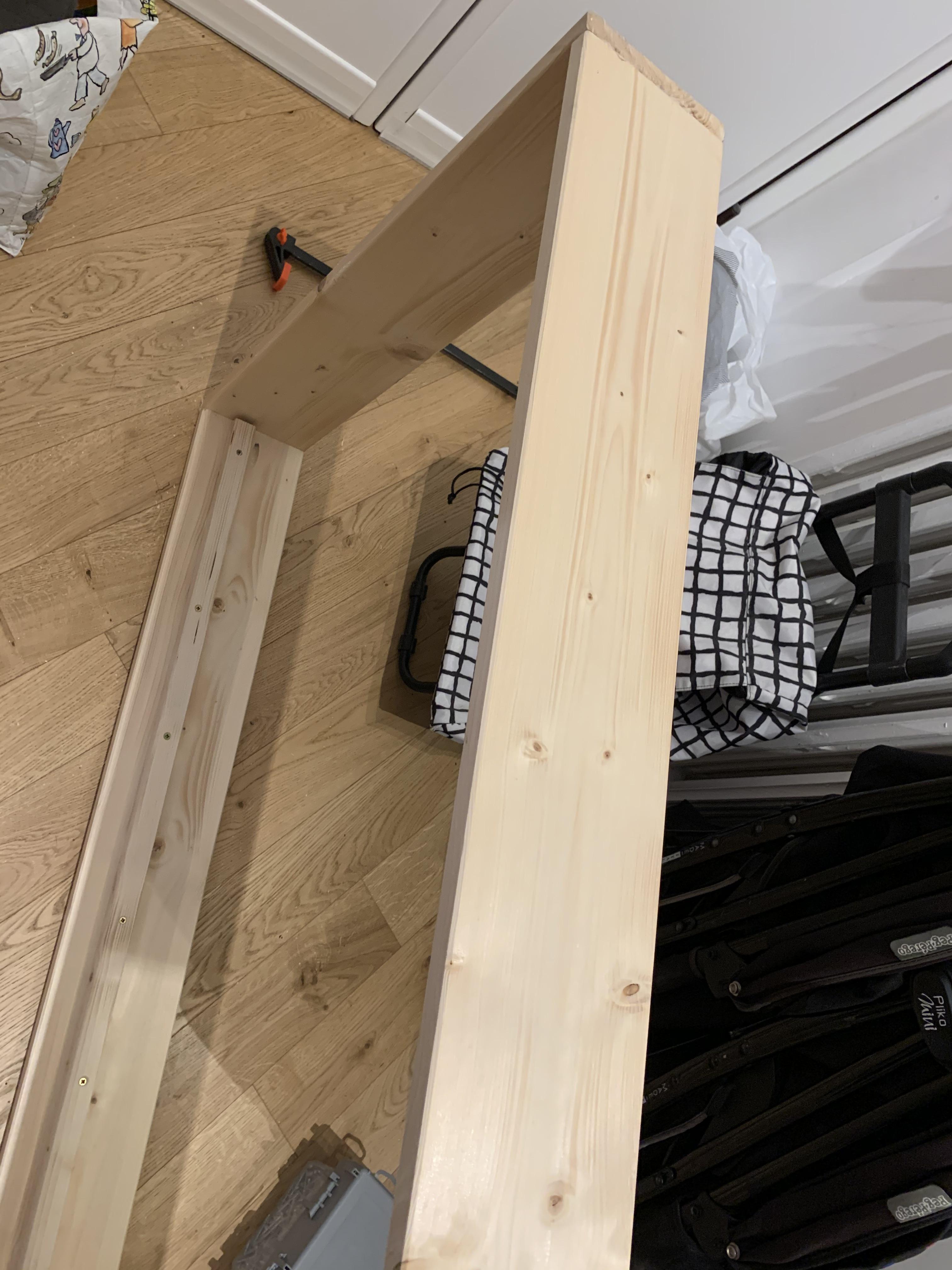
Still copying the structure of the original bed, I took the measurements and traced the lines where to fix the support strips for the slats.
There too, glue and screws as needed.
Last step, I added a central crossbar to reinforce the structure.
Reinforcing Corners
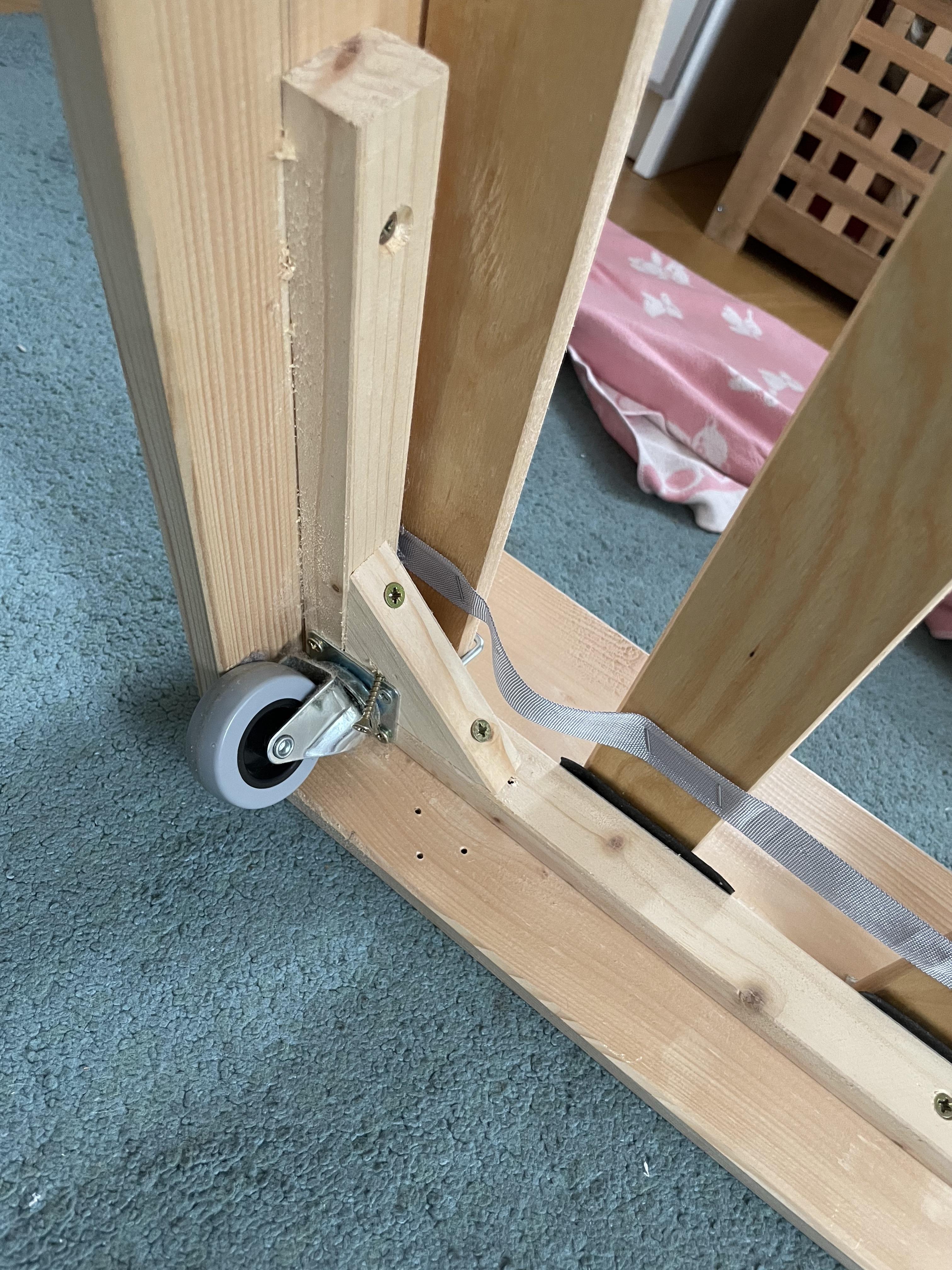
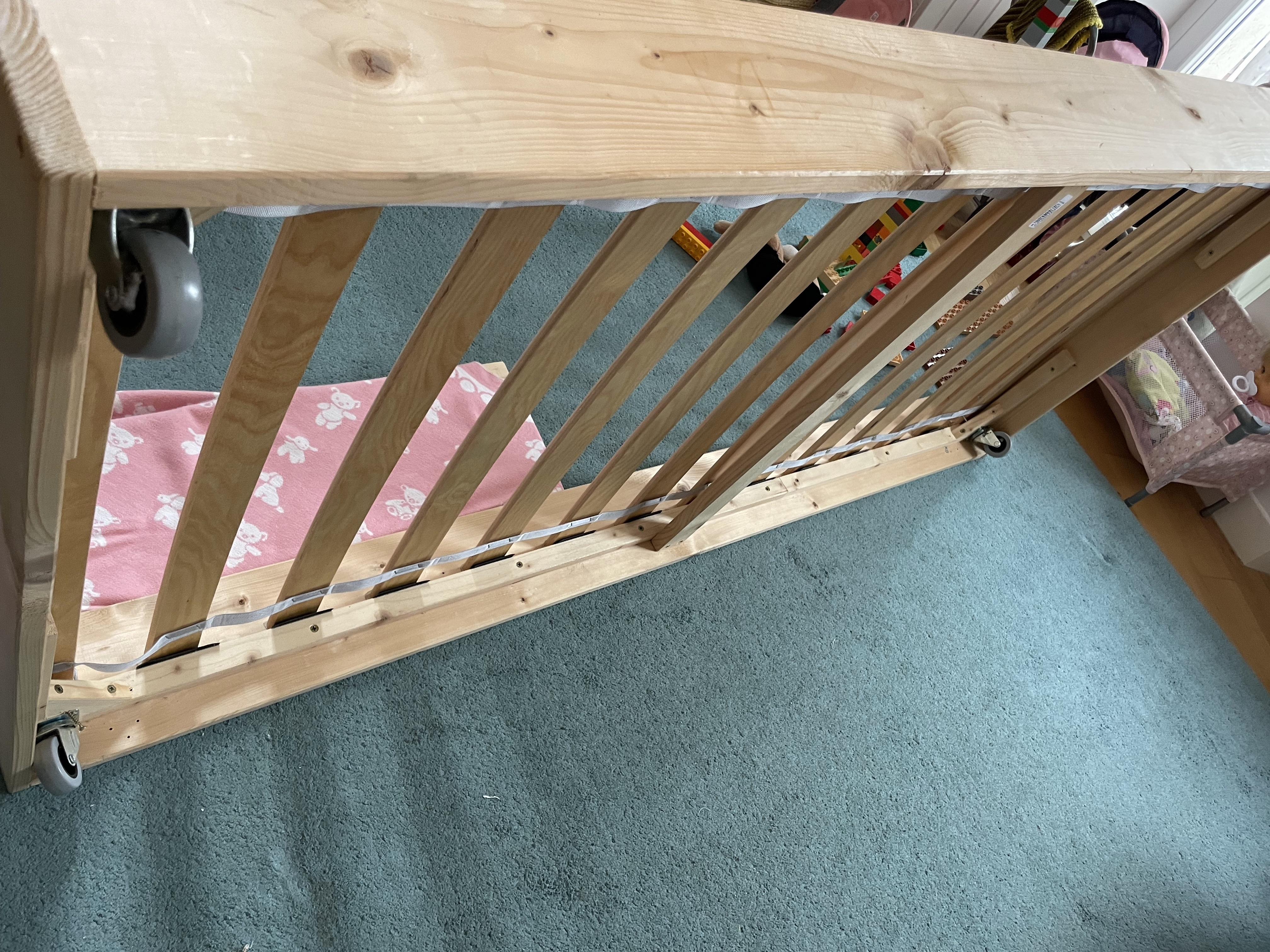
Last step, reinforce the corners and create a support for the wheels.
As you can see from the photos, I cut wooden triangles and then fixed them in correspondence with the corners of the bed with screws and glue.
This step, as I was saying, has two functions: first, to reinforce the bed structure where there was a risk that the boards would be distorted due to movement. Second, to provide enough surface where I could fix the wheels.
I then applied the wheels by adding a screw that limits rotation to simplify the sliding of the bed under the existing one.
Finishing Steps
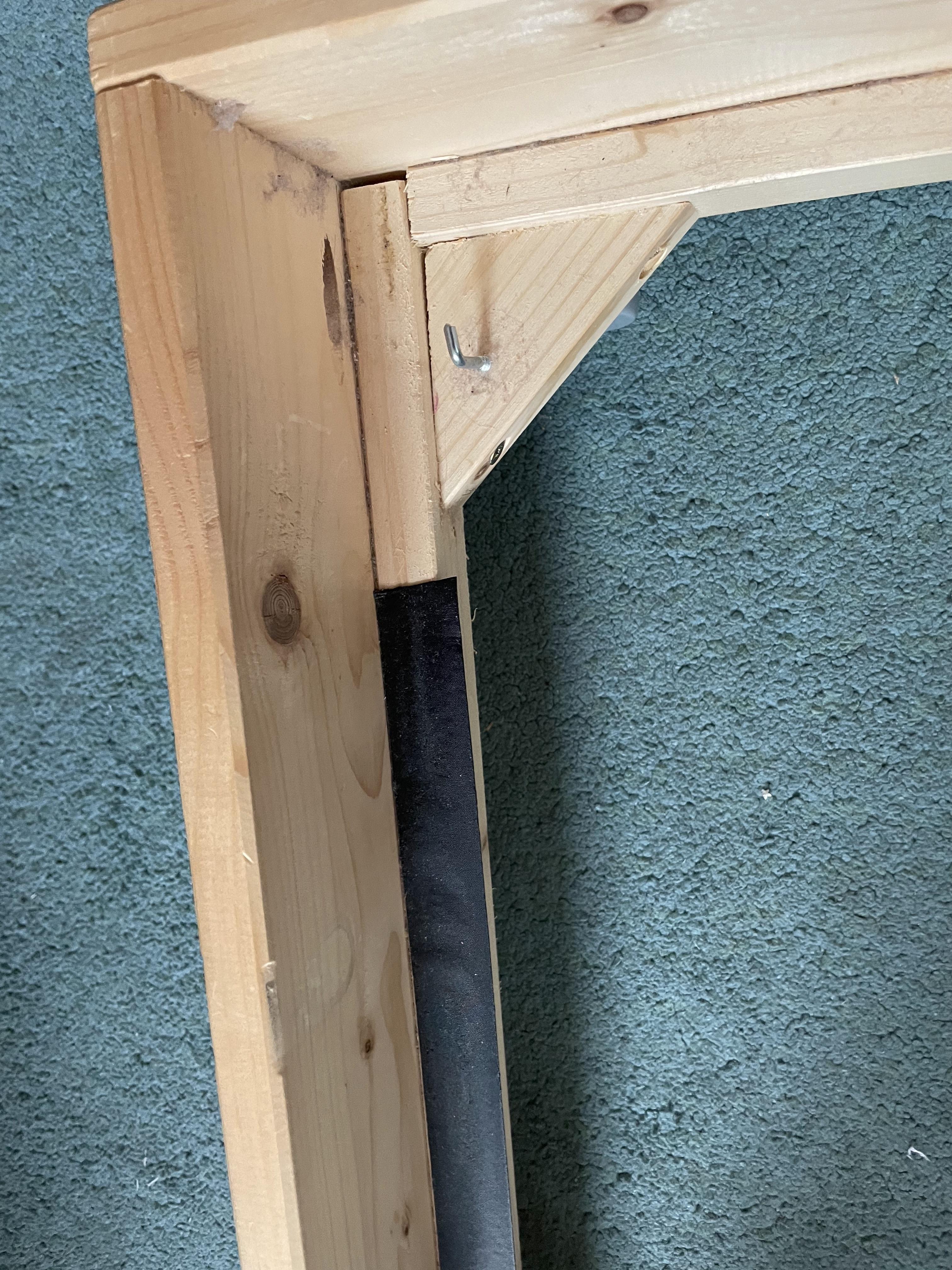
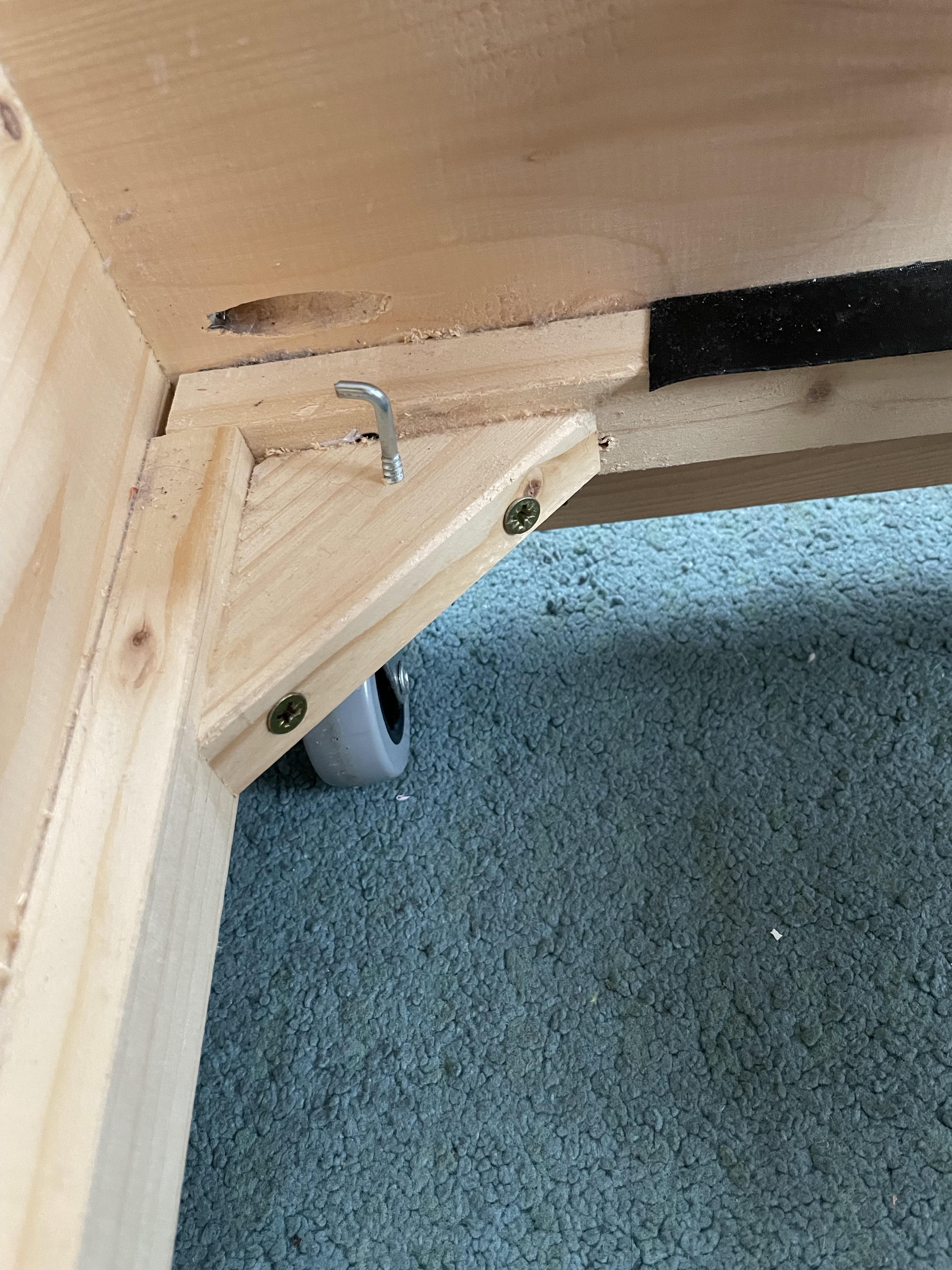
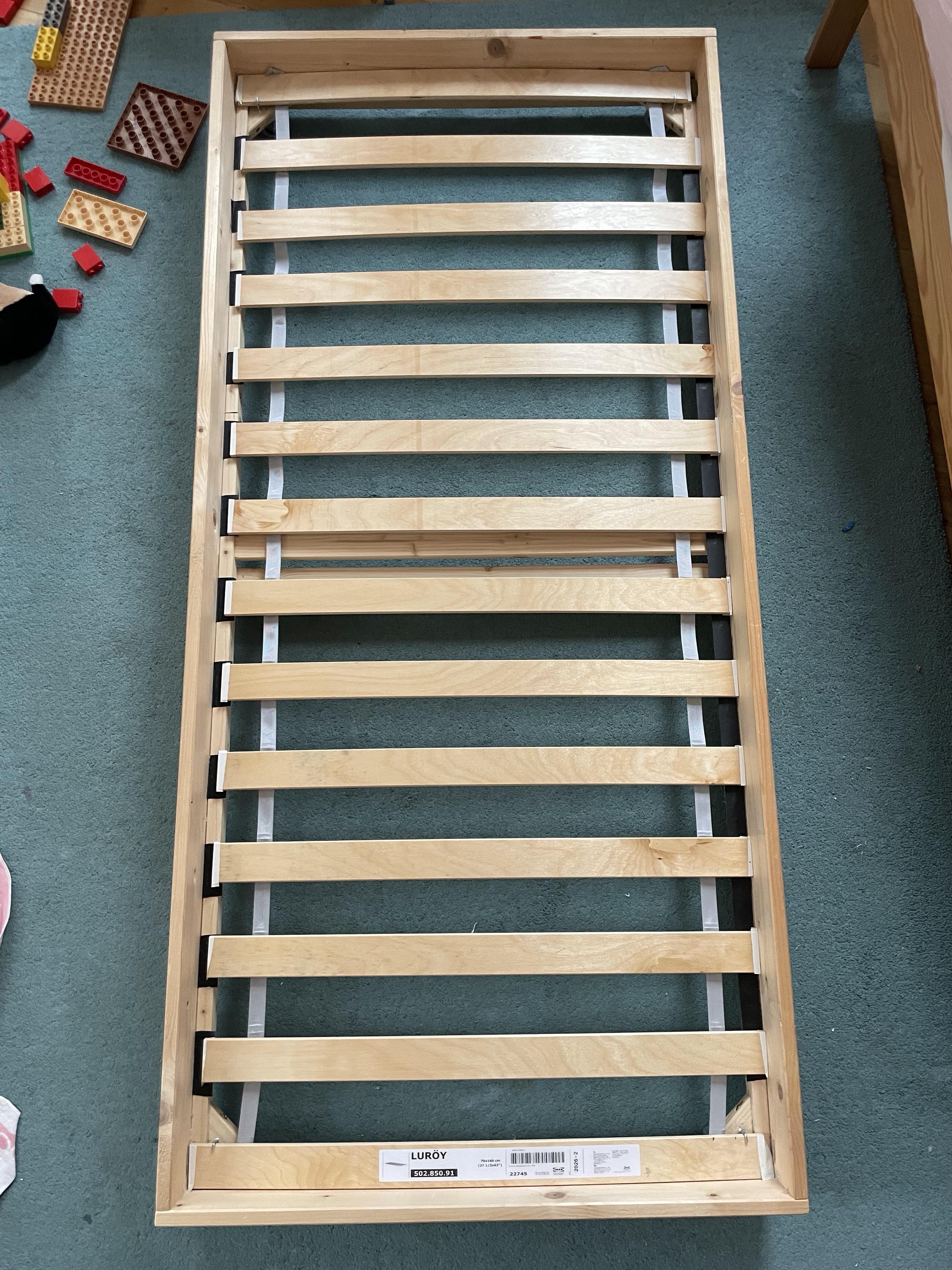
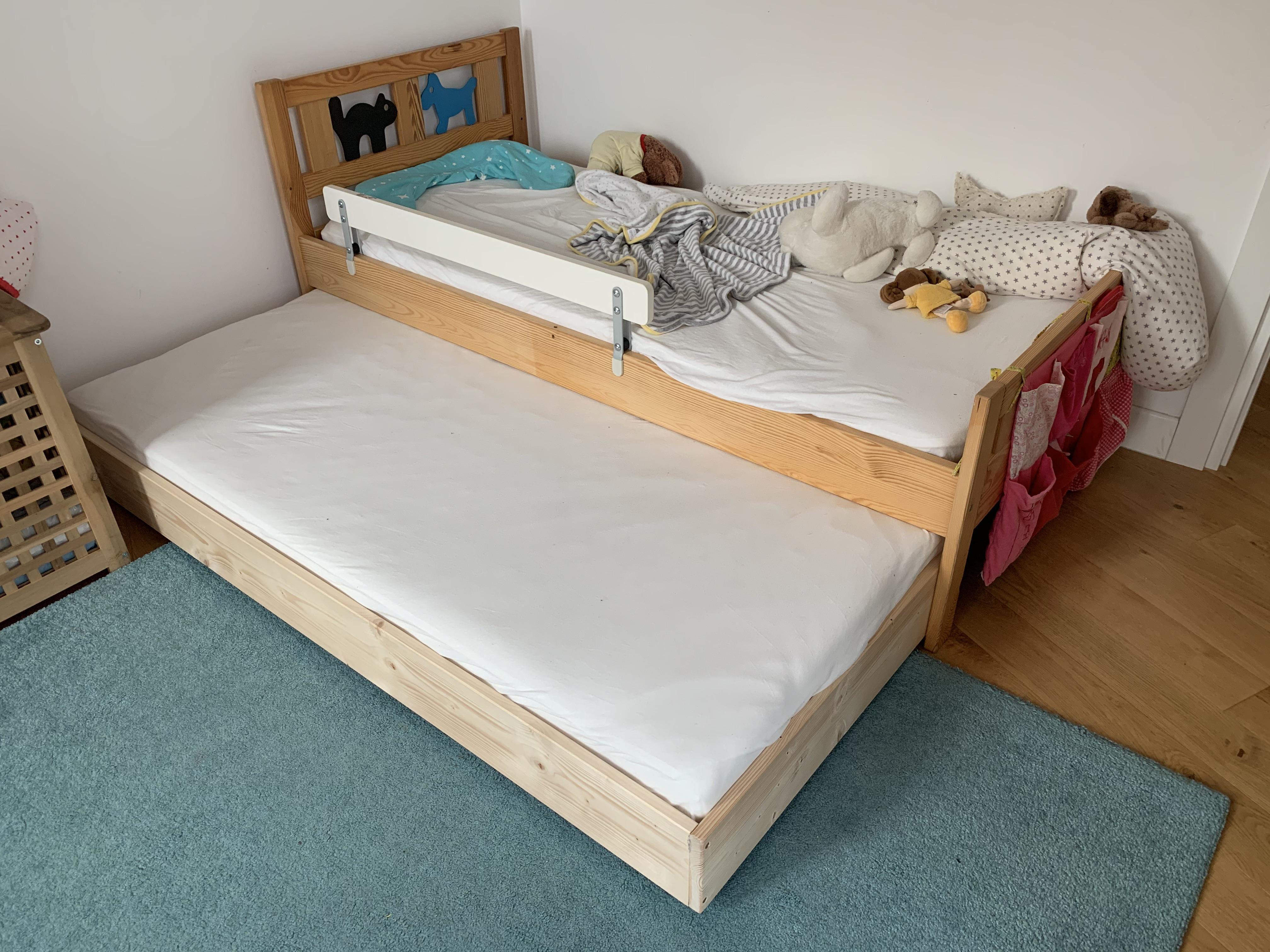

On the upper side, I added four L-shaped screws in the corners to hold the slats in place.
The bed is finished, the structure is very resistant even when the girls walk on it. Now we have been using it daily for 2 years, beyond my wildest expectations :D
However, we immediately noticed that when moving on the bed while lying on it, we could hear some very annoying creaking.
I therefore had to add a strip of rubberized tape on the two wooden strips where the slats rest. This made the bed very silent. The noise was caused by the rubbing of the flexible slats on the underlying structure.
Thank you!
Have a beautiful day!